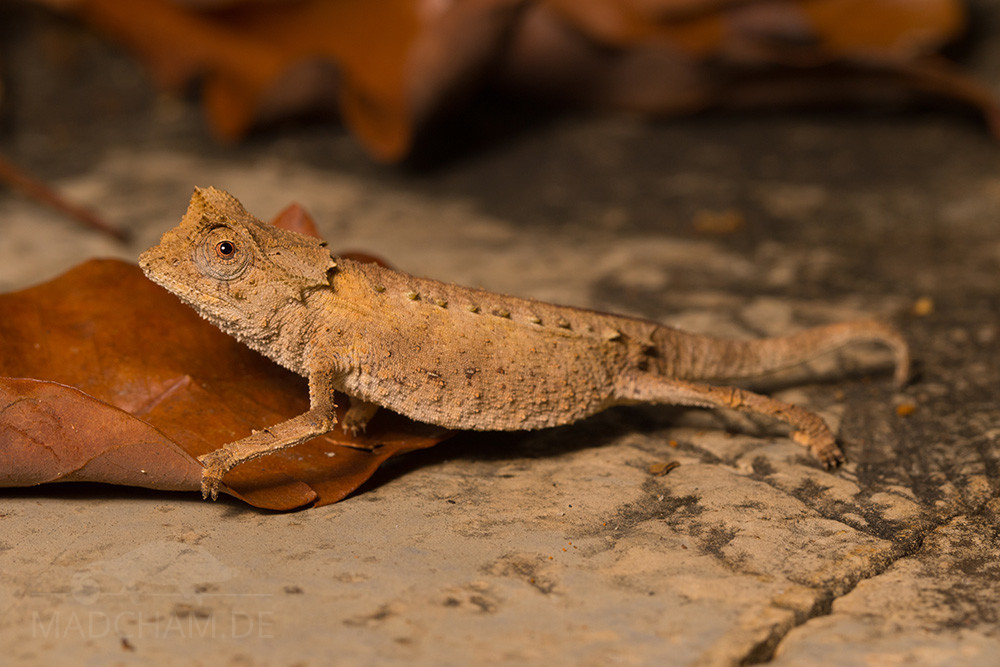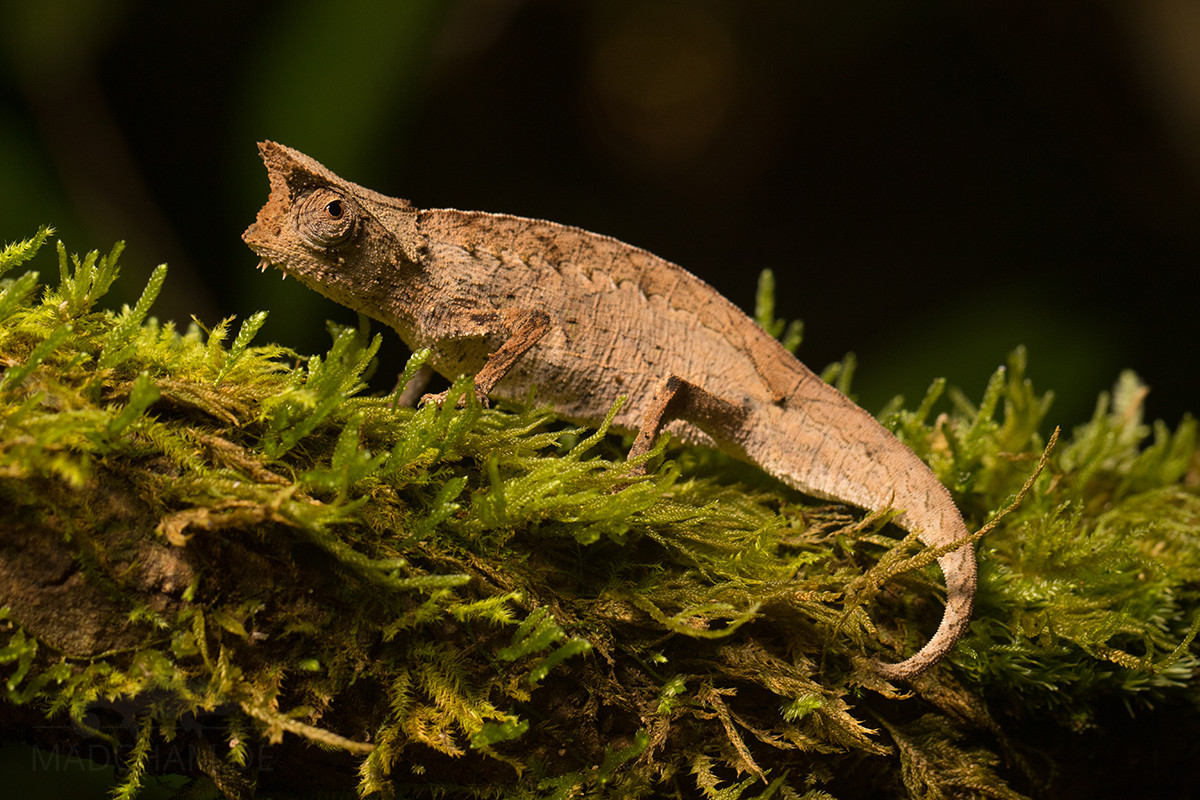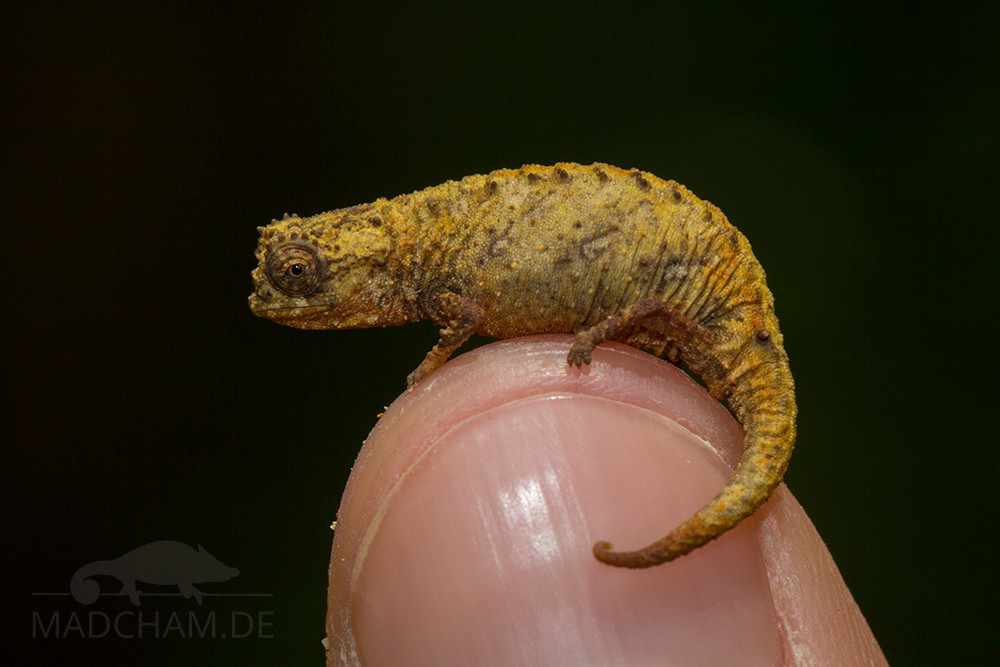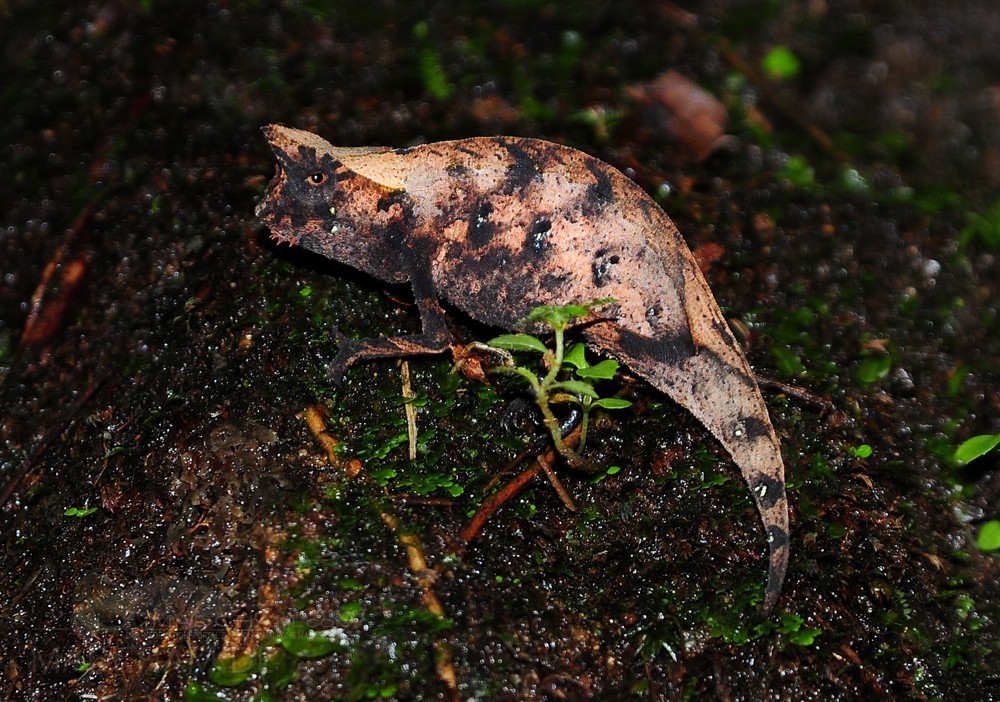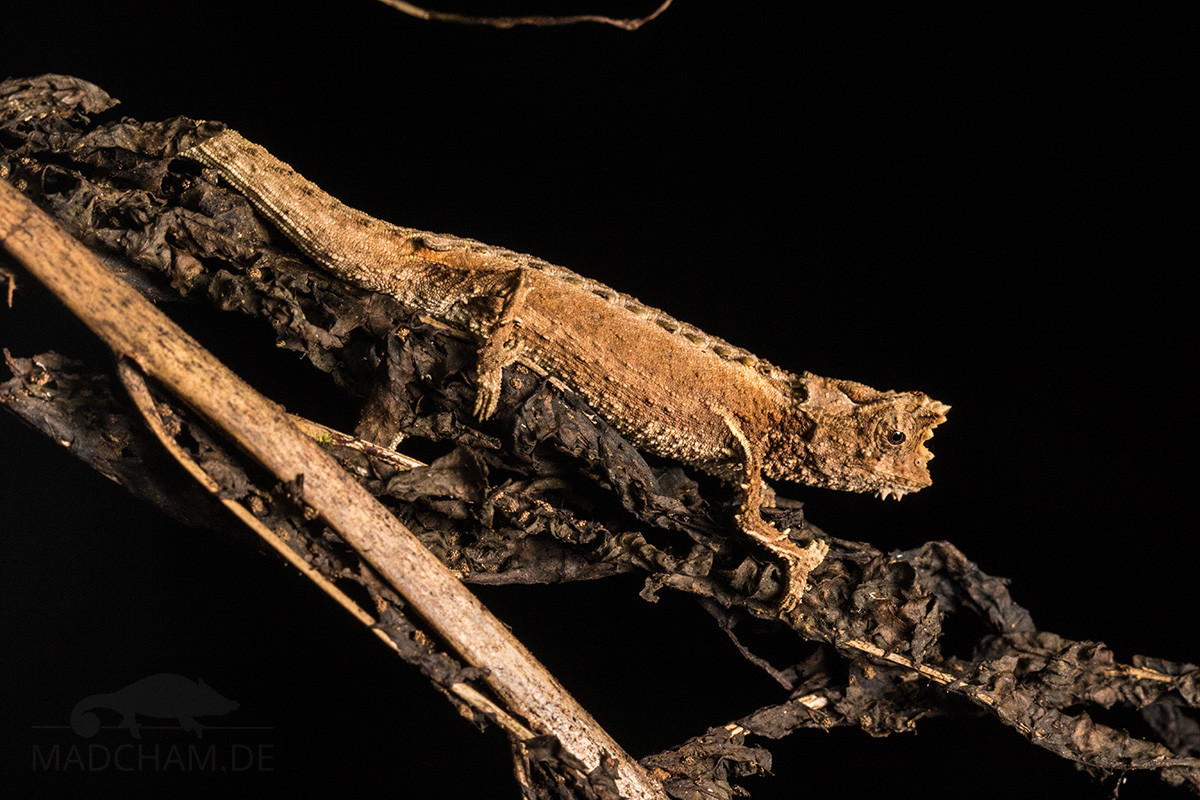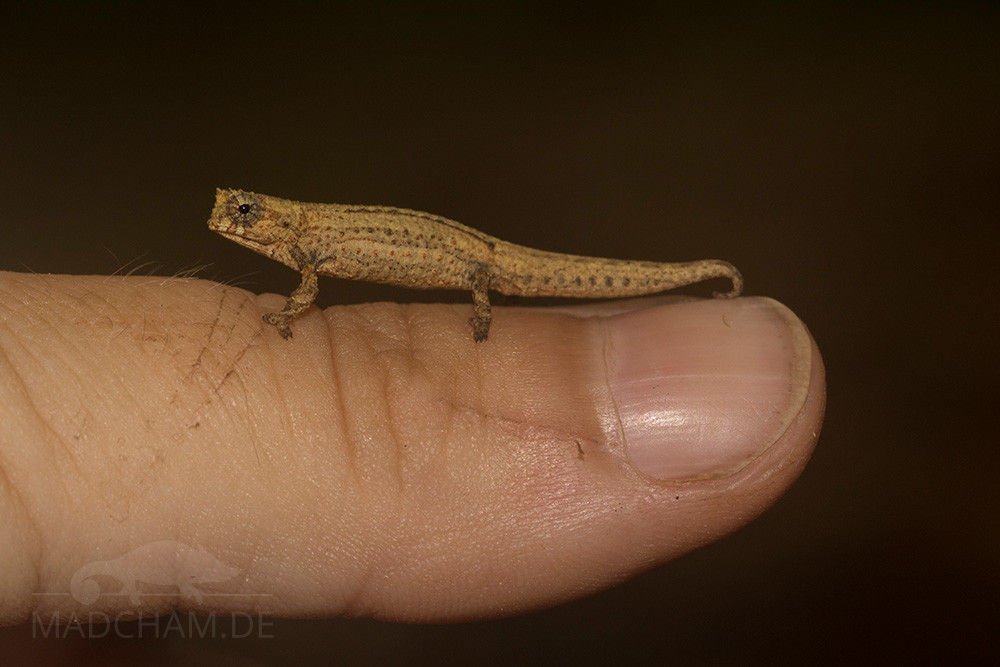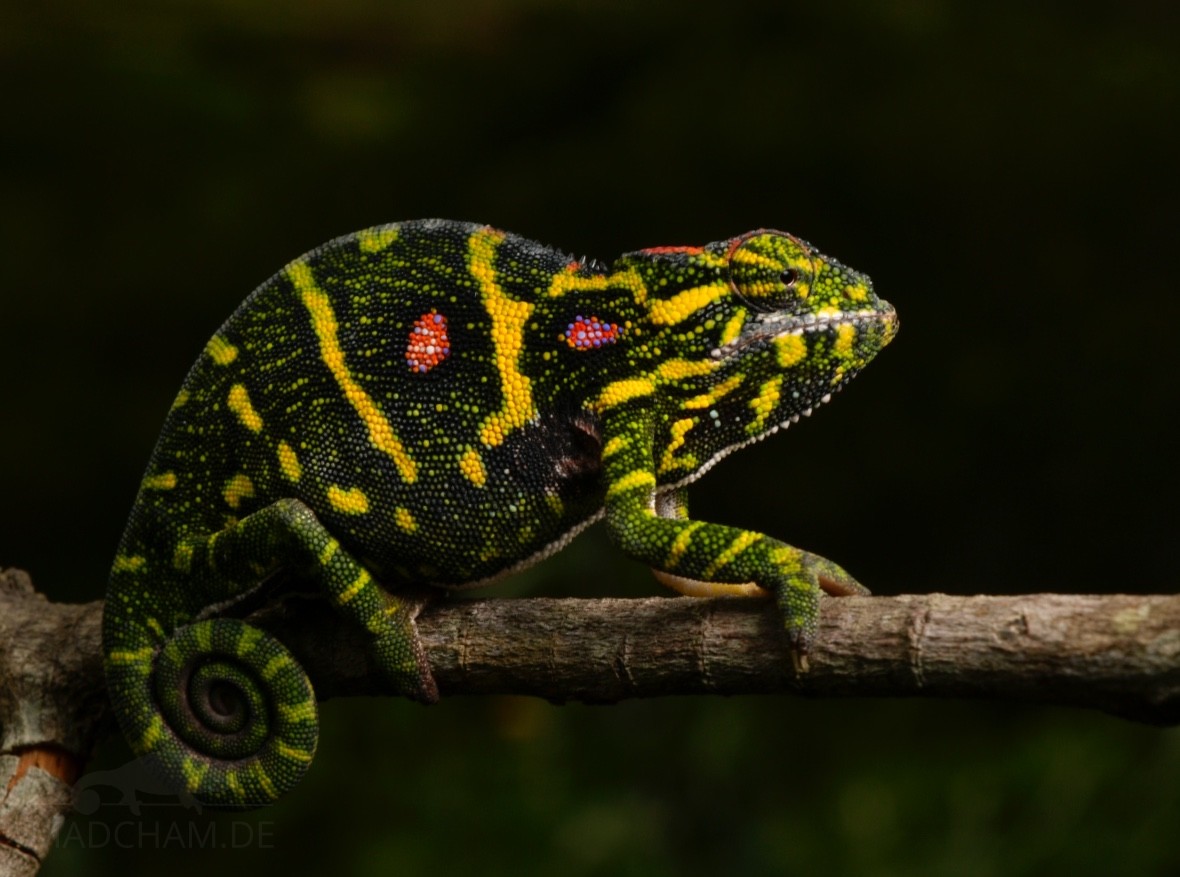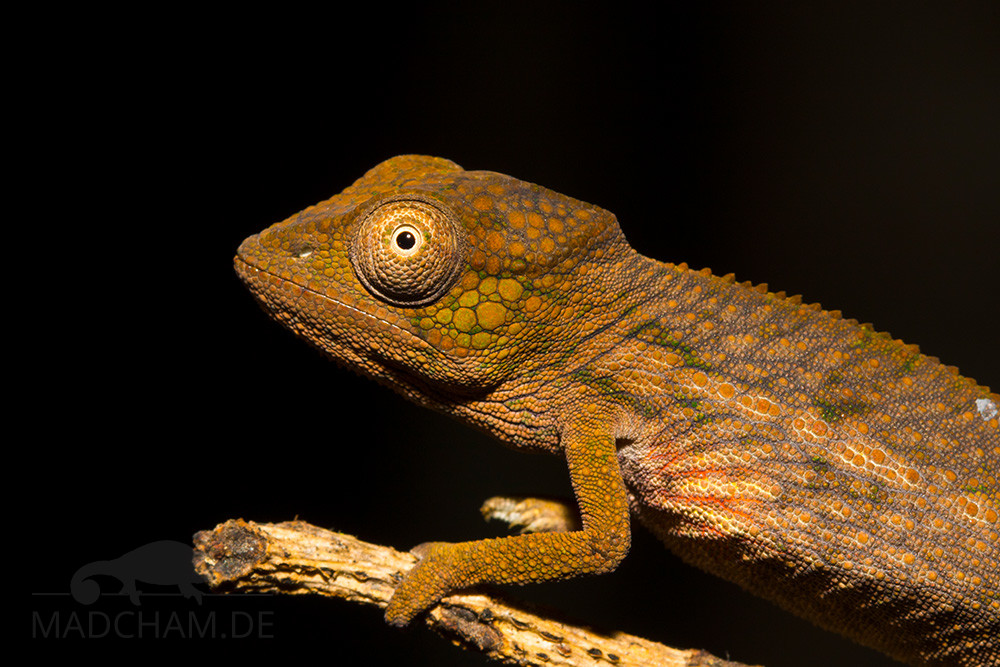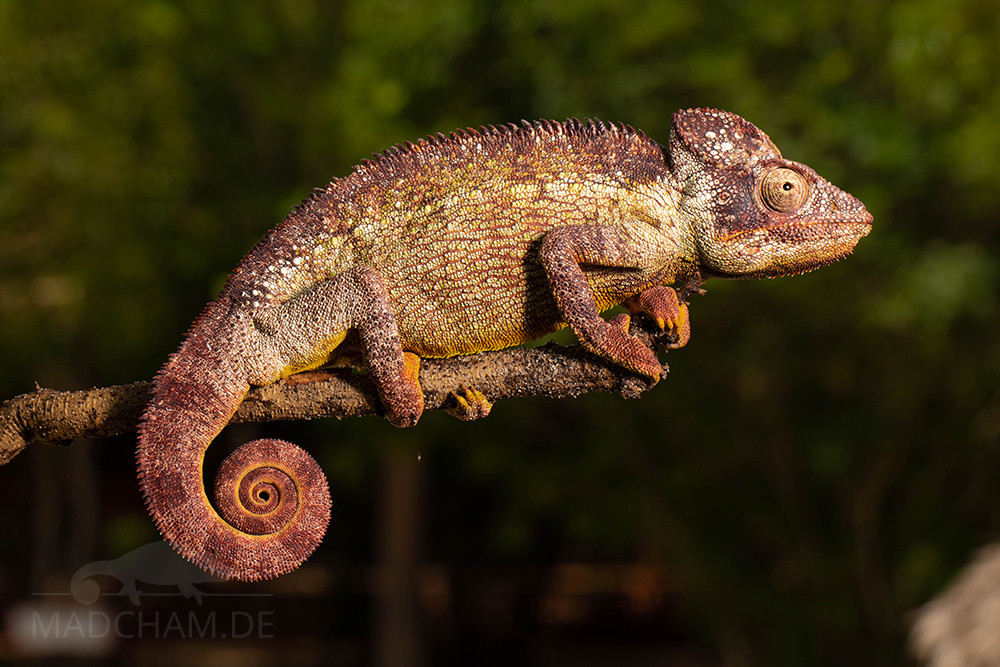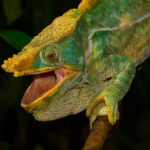Calumma globifer
First description: (Günther, 1879) Origin of the species name: The German zoologist Albert Carl Ludwig Gotthilf Günther, then director of the Zoological Department of the Natural History Museum of London (Great Britain), borrowed the...
Brookesia stumpffi
First description: Boettger, 1984 Origin of the species name: The paleontologist Oskar Böttger, then curator of the Senckenberg Museum in Francfort (Germany), named the species after Anton Stumpff. Together with Carl Ebenau, General Representative...
Brookesia superciliaris
First description: (Kuhl, 1820) Origin of the species name: The ornithologist Dr. Heinrich Kuhl from Francfort (Germany) named this chameleon species after its immediately recognizable, conspicuous bony projections above the eyes. The Latin word...
Brookesia tedi
First description: Scherz, Köhler, Rakotoarison, Glaw and Vences, 2019 Origin of the species name: Mark D. Scherz and Frank Glaw from the State Zoological Collection Munich (Germany), Jörn Köhler from the Hessisches Landesmuseum Darmstadt...
Brookesia therezieni
First description: Brygoo & Domergue, 1970 Origin of the species name: Édouard-Raoul Brygoo (later working at the Natural History Museum in Paris, France) and Charles Antoine Domergue of the then Institut Pasteur in...
Brookesia thieli
First description: Brygoo & Domergue, 1969 Origin of the species’ name: Édouard-Raoul Brygoo (later working at the Natural History Museum in Paris, France) and Charles Antoine Domergue of the then Institut Pasteur in Antananarivo,...
Brookesia tuberculata
First description: Mocquard, 1894 Origin of the species name: The zoologist François Mocquard of the Natural History Museum in Paris (France) borrowed the species name from the Latin tubercula, which means “many bumps”. In...
Furcifer minor
First descriptions: (Günther, 1879) Origin of the species name: The German zoologist Albert Carl Ludwig Gotthilf Günther, then director of the Zoological Department of the Natural History Museum of London (Great Britain), received a...
Furcifer nicosiai
First description: Jesu, Mattioli & Schimmenti, 1999 Origin of the species name: The three Italian biologists Riccardo Jesu, Fabio Mattioli, and Giovanni Schimmenti from the Aquarium Genoa (Italy) dedicated the species to Guido Nicosia,...
Furcifer oustaleti
First description: (Mocquard, 1894) Origin of the species name: The zoologist François Mocquard of the Natural History Museum in Paris (France) received chameleons in the 1890s from M. Catat, the entomologist Charles Alluaud and...


